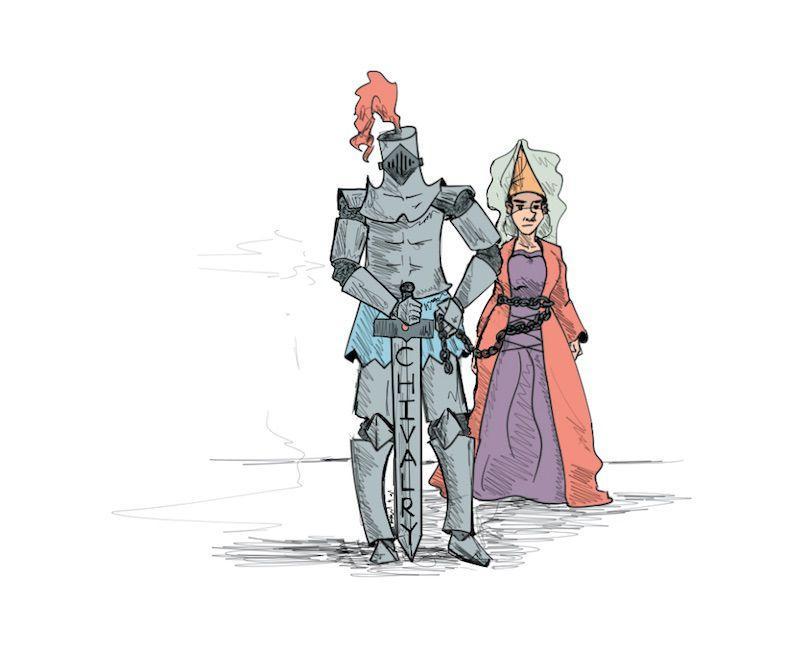Editor’s note: This article is a part of a head-to-head. Read the other article here.
Over the past few years, chivalry has been a point of contention among feminists, traditionalists and couples everywhere. Formed in the Middle Ages, chivalry set the standard for men’s behavior for centuries.
Chivalry was a code of honor sworn on by medieval knights. The code commands knights to be honorable, truthful and good, defenders of the downtrodden.
Despite being the expectation since its creation, chivalry has found itself in the middle of political and social debate alike. Feminists sing its praises, relishing in the opportunity to be treated like a queen by their wild and uncivilized male counterparts. Right-wing religious radicals agree, citing their God-given mandate to protect their women.
The latter example seems noble, but it doesn’t hold up under close inspection. Women don’t share the same noble calling to protect their men. A look back at history tells us men were trusted with such a goal because they boasted higher willpower and, simply put, a better track record than women. Medieval art often depicted the story of Adam and Eve in the Garden of Eden, a representation of females’ moral weakness and temptation.
This information doesn’t do feminists a favor, either. If chivalry was built upon women being inferior, then the very notion is anti-feminist by nature. In the Middle Ages, women were afforded painfully little freedom. The most autonomy they could achieve was as a monarch, an abbess or, ironically, a peasant.
Oddly enough, women born into nobility were granted the least freedom. Wealthy men had little oversight compared to their peasant and clergy countrymen. This lack of oversight often led to them treating women as objects. These objects were to be protected and honored, yes, but also to be claimed as prizes.
Enter the code of chivalry. When a man is knighted, he must swear fealty to his king and country. It is a noble mission statement, but it often failed in practice. In reality, most knights came off as common thugs.
The mandate of defending the weak soon twisted into the idea of superiority to others. Since women were not qualified to become knights, they were inherently inferior to the noble horsemen.
European literature tells two tales of chivalry. The first and most notable is the romanticized version of knights in shining armor slaying dragons and saving the king from a horde of invaders, winning the heart of his lady in the process.
This tale is a fantasy, the same as you would find in a game of “Dungeons & Dragons.” When poems and short stories didn’t focus on heroic knights, they gave some hint as to the bondage of women. Women were normally only allowed to roam their land, and were often restricted to their bedrooms.
Opening the door for a woman is sweet until you realize men opened the door to direct women into the chambers they would be locked in. Shielding a woman from mud and rain was a knight’s way of maintaining the trophy earned by “valorous deeds.”
Let’s not forget about chivalry. Let’s learn from it. We don’t need a system where men take ownership of women to protect them. Instead, we ought to abide by a system of common decency. Hold the door open for someone because it’s kind, not because she’s a woman.
We can honor the legacy of chivalry by attempting to be good people. We should abandon archaic, obsolete forms of interaction.
Women are capable. Women can perform just about the same as men. Treating them as “other” isn’t what is necessary to progress, even if it means treating them like queens. Now more than ever, women have a voice. It should not be wasted begging for a sexist relic of the past. Let’s devote our voices to finding a better future together.
Kyle Richoux is a 19-year-old sociology sophomore from LaPlace, Louisiana.
Opinion: Chivalry antiquated practice, demeaning to women
By Kyle Richoux
February 14, 2018








